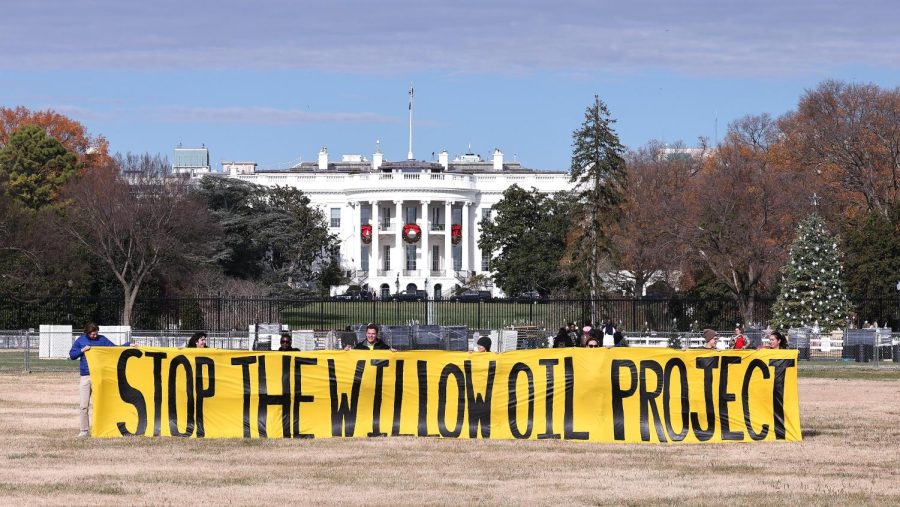The Willow Project
On March 13th, President Joe Biden approved the Willow Project, a massive oil drilling project in Alaska. This initiative has angered climate activists worldwide, and triggered a series of protests.
Willow is an oil reserve in Alaska controlled by the company ConocoPhillips. Ever since oil was first discovered there in 2016, it has been seen as an opportunity to rely less on foreign countries’ oil, generate many jobs, and rake in money for the state and national government. After much support from Alaskan lawmakers, the Biden Administration finally approved the project this March. Although this has been seen as a victory by many, there are several important consequences.
If the Willow Project produces as much oil as expected, which is around 600 million barrels of oil over 30 years, it will end up releasing 9.2 million metric tons of planet-warming carbon pollution a year. For reference, this is the same amount of pollution which would be produced if 2 million more gas-powered cars were added to the world. Beyond contributing to climate warming, the project would also disrupt natural ecosystems. Willow is located in the part of Alaska which is the main habitat for polar bears, as well as thousands of migrating caribou and waterfowl. The introduction of mass construction would disturb their lives and change their migration patterns.
These consequences have led to much backlash from environmental activists who claim that, “Biden had made big promises to prioritize environmental protections, climate change and an end to drilling on public land,” and see this project as a step backward. A few environmental organizations have already sued the Biden Administration, stating that the emissions from this project would be counterproductive to federal goals to address climate change. There have also been protests from local Alaskan tribal communities against the project. However, Biden has his reasons for allowing this program to continue.
His administration says the decision was, “a legal necessity,” as Conoco holds decade-old leases in the National Petroleum-Reserve. Since they own the rights to this area and can legally drill there, if Biden were to reject this project, it could cost the government millions of dollars. The federal government’s involvement actually decreased the environmental harm from the inevitable project, as they pressured Conoco into agreeing to shrink the drilling area to 40 percent of its original intended size. Next, with bans on Russian fossil fuel imports, the oil demand has skyrocketed, leading many nations to scramble to find more alternative areas to get oil from. This new project would be able to supply oil for more countries besides simply the United States.
Although this project has a lot of support, including from Alaskan representatives Sen. Lisa Murkowski (R-Alaska) and Rep. Mary Peltola (D-Alaska), it is important not to forget the environmental dangers the Willow Project may pose for the future.



